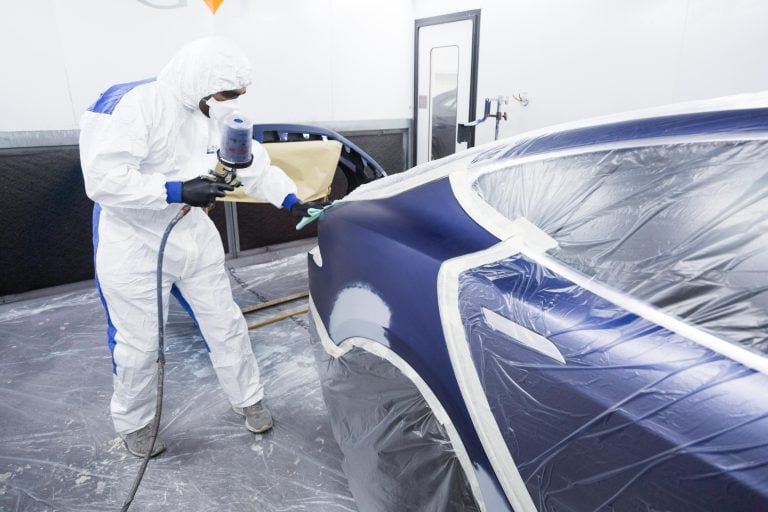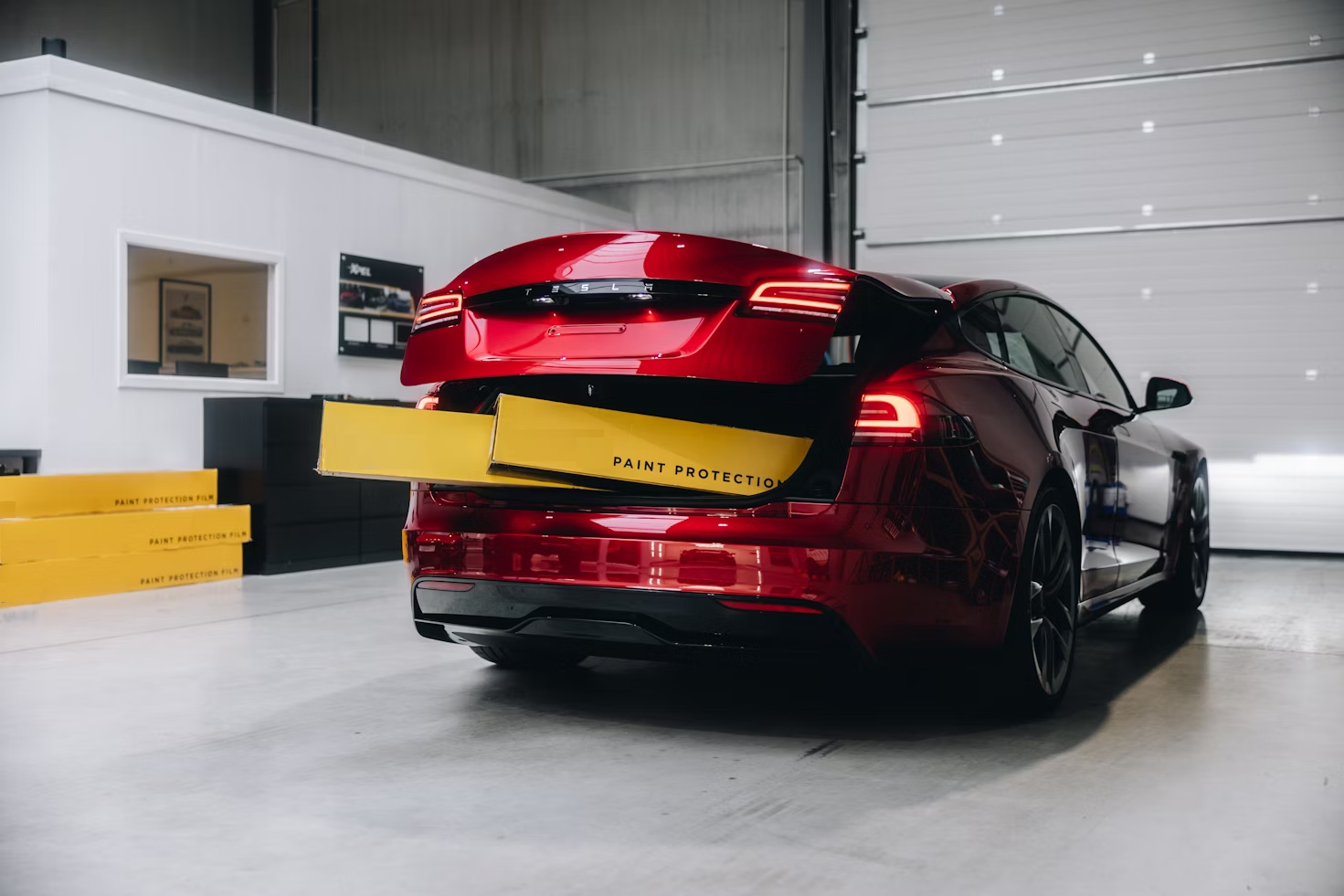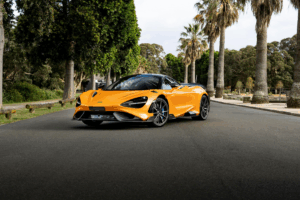- Showroom Case Studies
How to Export Cars From the UK Post-Brexit: New Rules & Routes | GVE London – Blog
Post-Brexit car exports from the UK are complex. Learn key rules, routes, and tips to successfully ship luxury vehicles to markets like Indonesia.
Vehicle export from the UK has turned out to be extremely complex following Brexit, which caused several car exporters to re-evaluate the routes, documentation, and regulations. The intricate custom procedures, delays with shipping, and the latest tariff implications have now been connected to the entire export journey. Irrespective of the several hurdles, the global need for British vehicles, mainly dealing with the premium models, maintains its staunch ground. The exporters focused on success should now balance compliance with quality and efficiency. Those who are exploring the markets of the Middle East or Southeast Asia are adapting to the latest rules, which remain critical for exporting cars from the UK.
Adapting to the New Export Landscape
The stringent regulations and documentation needs evolved right after Brexit. Knowing them remains the key before any supercar or standard vehicle leaves the UK. So, here are a few important attributes that exporters should know.
Understanding Post-Brexit Export Documentation
There will now be documentation, which was previously not necessary prior to Brexit, for every vehicle export. The documentation is comprehensive, but key documents include the Certificate of Conformity (CoC), a bill of lading, and evidence of ownership. If you are missing any of these documents, this could result in customs delays or refusal at the port of destination. The exporter will also need to be aware of the EORI (Economic Operator Registration and Identification) number if they are trading outside of the UK. The EORI number is an identification number used by you (the exporter) when you are exporting to clear regular goods through UK customs and to ensure you declare the correct codes for taxes and duties.
A UK vehicle log book (V5C) should also declare intent to export, and the DVLA should be informed of the vehicle’s permanent departure. If you own and run a supercar showroom, neglecting the paperwork and misrepresenting the sale of the vehicle is expensive and could have legal ramifications.
Choosing the Right Shipping Route
Sea freight has turned out as the most affordable path for luxury car export, mainly over greater distances like the route from the UK to Indonesia. The cars can be shipped using container shipping or roll-on/roll-off (RoRo) vessels. These RoRo are often the fastest ones; however, they offer very little protection as an issue fo the expensive and rarest models. Although expensive, the containers offer the best level of security and climate control for high-end vehicles.
The choice of the route often relies on the port accessibilities available in Indonesia and the shipper’s frequency. Both Surabaya and Jakarta ports receive the majority of UK exports; however, customs clearance times vary depending on the transportation modes and the readiness of the paperwork.
Read Also: Maximising Profit: Strategies for Successfully Exporting Luxury Cars
Export Luxury Cars to Indonesia: Special Considerations
Indonesia has a strict regulatory scheme around car imports, especially for luxury and supercars. Import duties can be as high as 300%, depending on engine size or vehicle type. Be sure to comply with Indonesia’s environmental and safety regulations before exporting; failure to do so could result in an import denial ban on those vehicles or heavy fines. If your client has a trustworthy clearing agent in Indonesia, working with them may make for a more seamless process.
They will be helpful in interpreting local customs laws and getting you through import clearance at the port faster. Businesses looking to export luxury cars to Indonesia should consider working with logistics providers with experience in Indonesia who know the market inside and out.
Inspection and Detailing Before Shipment
Luxury vehicles should never leave the UK without an extensive inspection and complete detailing. Car preparation for global transport involves inspecting fluid levels, battery disconnections, tyre inflation, and securing loose items. For exotic vehicles from the supercar showroom like GVE London, both protection and presentation are essential.
Hiring a professional service for paint protection film (PPF), ceramic coating, or even full-body wrapping ensures the vehicle remains in pristine condition upon arrival. Vehicle condition reports should be documented with photographs to ensure any transit damage claims can be verified.
Customs Duties and VAT Implications
The VAT regulations are currently distinct depending on which country the taxable goods are exported to. Exporting outside the EU is usually considered zero-rated, but only if you maintain proof of export. The export of the goods must take place within the three-month time frame allowed to obtain zero-rate VAT. Suppose you do not maintain proof of the export, or there is any deviation from the permitted three months. In that case, the business will likely receive fines or will be charged a tax that is backdated to the sale, and possibly have an additional fine.
Duties will also depend on the trade agreement that the UK has with the country where the goods are being exported. Due to Brexit, the UK no longer enjoys trade agreements EU-wide, so you will need to learn about the individual trade deals between the two countries. If you are consistently involved in exporting cars from the UK, a customs broker or international trade advisor would be a great resource.
Building a Trusted Export Network
A seamless export process relies on a reliable connection with the shipping lines, customs brokers, freight forwarders, and local agents. Every player should aim to deliver reliability and precision when handling luxury car exports. Poor handling, missed schedules, or inaccurate paperwork would seriously lower the value of the vehicle and the reputation of the business.
Several supercar showrooms in the UK operate mainly among vetted providers who know about the complexities of luxury automotive logistics. Landing on these networks takes time to pay for the dividends across reliability and inefficiencies.
Conclusion
As UK exporters adjust to life after Brexit, now more than ever, accuracy and planning are of the utmost importance. Exporters of high-value vehicles, especially luxury vehicle exporters, should remain vigilant and work with professionals to ensure all operations run smoothly. For the finest care prior to export, GVE London specialises in high-end vehicles, including supercar detailing, wrapping, body shop work, and servicing, to assist you with ensuring that your vehicle is in perfect showroom condition when it leaves the UK. If you are looking for professional services for your export-ready vehicle, contact us today!
Frequently Asked Questions
No, you cannot export a vehicle still under finance or lease since you do not yet own it. The vehicle must be fully paid, and you will need to show proof of ownership before you begin your export.
Yes, we highly recommend marine cargo insurance. This insurance protects your vehicle during transit in case of damage, theft, or loss. For high-value luxury or performance cars, insurance may give you peace of mind.
This depends on the whole process, but it typically takes 4-6 weeks for the vehicle to leave the UK, including customs clearance, port handling, and ocean transit. Weather or port delays may impact and extend the time in transit.
Contact Us
"*" indicates required fields
OUR SERVICES
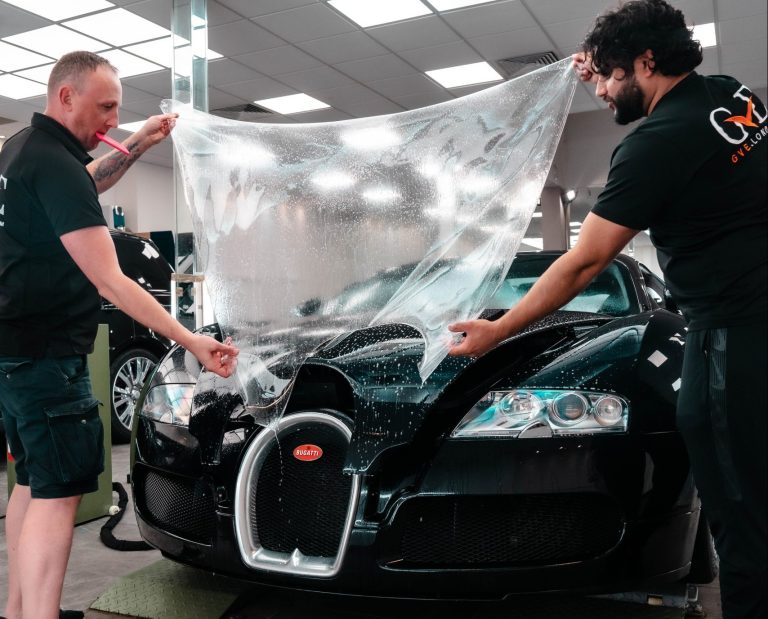
PAINT PROTECTION FILM
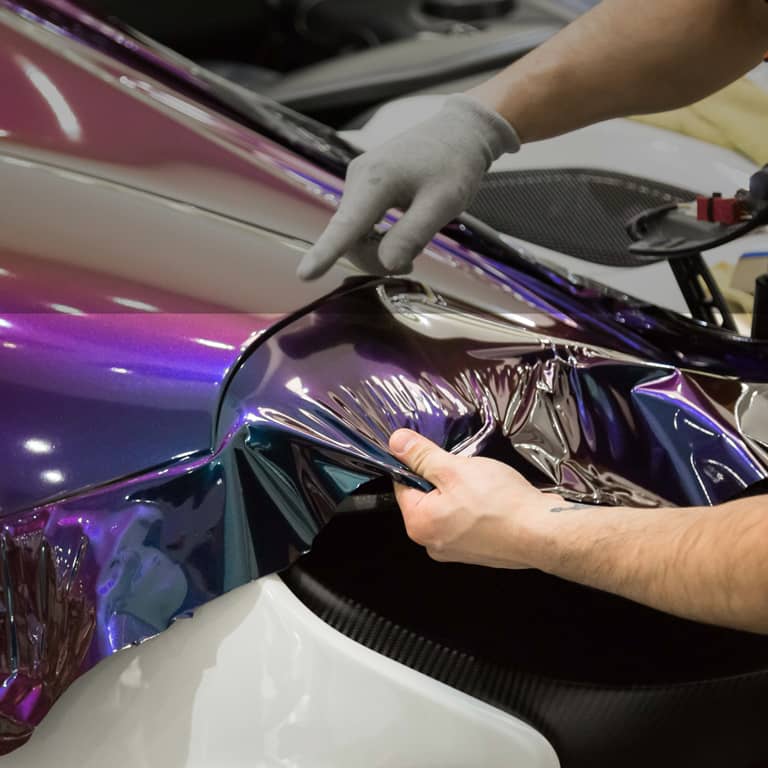
WRAPPING
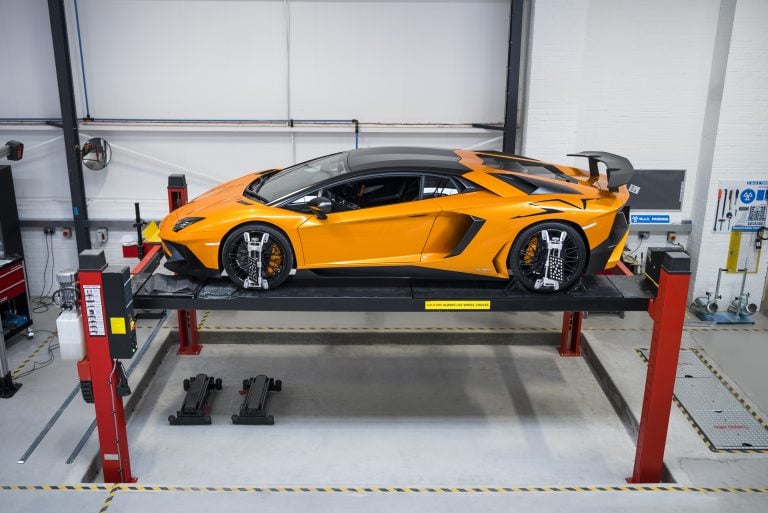
SERVICING
